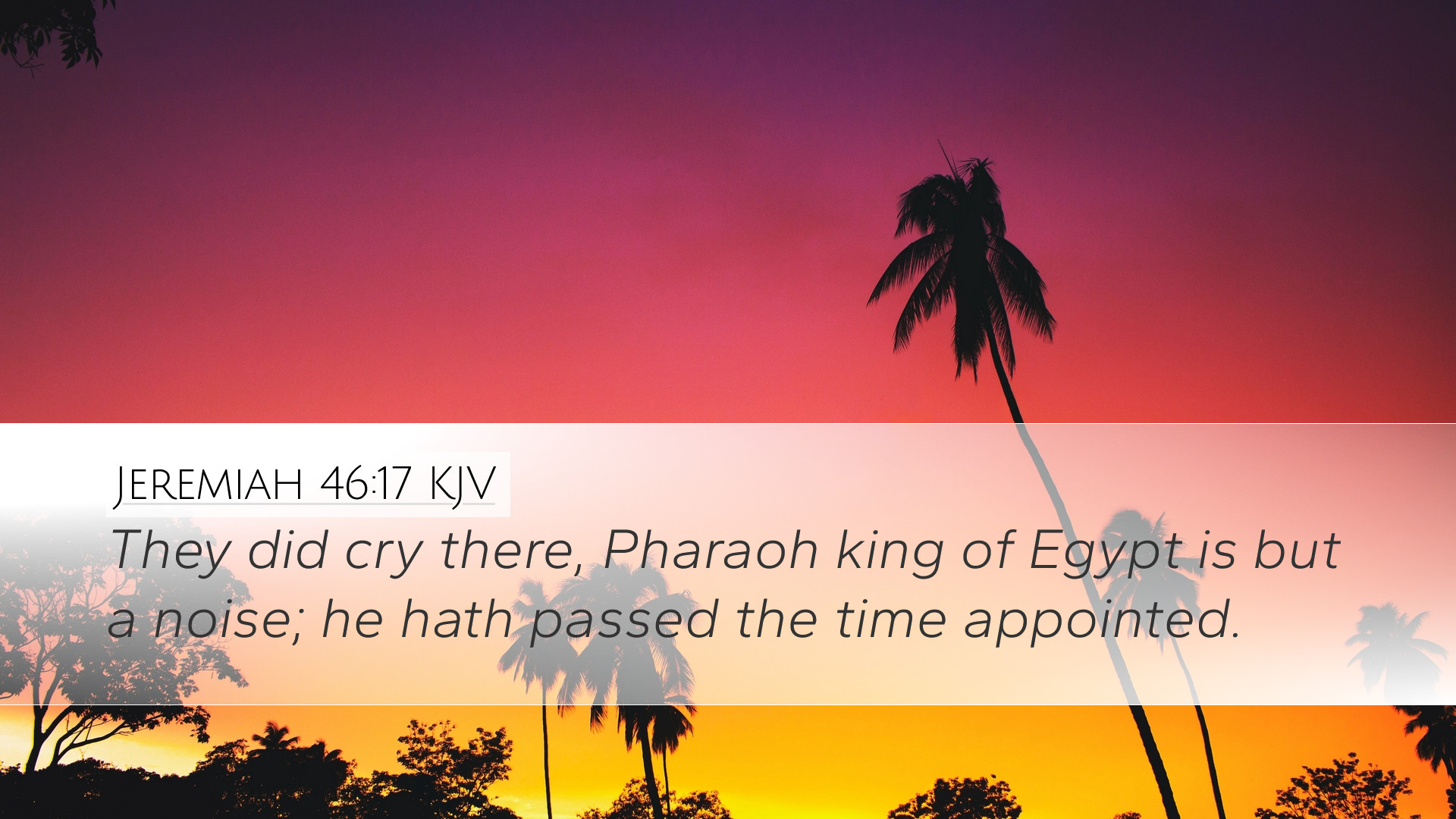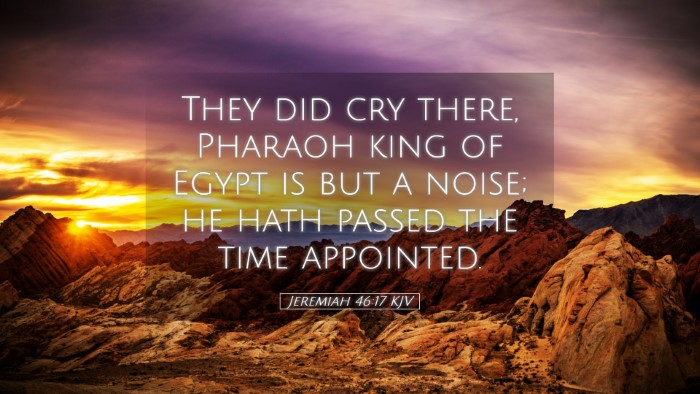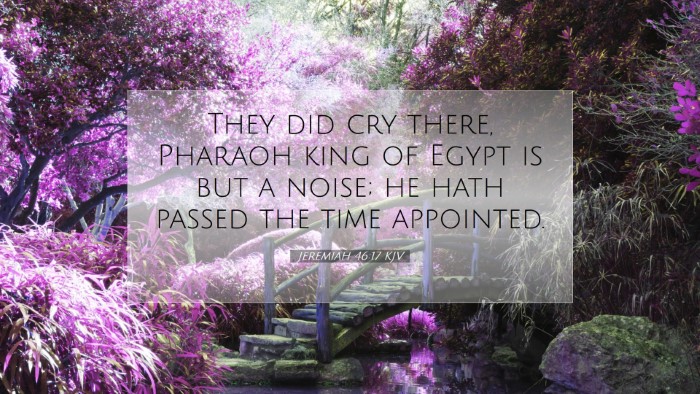Commentary on Jeremiah 46:17
"They did cry there, Pharaoh king of Egypt is but a noise; he hath passed the time appointed."
Contextual Overview
Jeremiah 46 is part of a larger section in the book of Jeremiah that delineates God's judgment against various nations. This particular chapter addresses Egypt, which was a prominent power in the ancient Near East. In this verse, the desolation of what once was a powerful kingdom is expressed through the lamentations of its people.
Insights from Matthew Henry
Matthew Henry notes that this verse signifies the demise of Pharaoh's power and the ultimate futility of his reign when facing God’s judgment. He points out that Egypt, once proud and potent, is reduced to mere "noise" - indicating that Pharaoh's threats and ambitions amount to nothing against God's sovereign plans. Henry emphasizes the contrast between the might of Pharaoh and the inevitable reality of defeat before the Almighty.
- Pharaoh's False Security: Henry remarks that Pharaoh's confidence is misplaced. He is described as a “noise” suggesting that his reign has lost substance and respect.
- Call to Awareness: The cry of the Egyptians illustrates a moment of reckoning. They awaken to the truth that their leader offers no salvation.
- Divine Judgment: Henry’s analysis brings forward the theological theme of God’s sovereignty over nations, underscoring the idea that human rulers ultimately serve God's purposes, whether they realize it or not.
Albert Barnes' Commentary
In his commentary, Albert Barnes highlights the phrase “but a noise” as a poignant realization for the people of Egypt. This denotes not only Pharaoh’s failure but also the emptiness of what was once revered. Barnes contextualizes this within the historical backdrop of Egypt's military engagements, noting the impact of these struggles on the national psyche.
- Historical Hintergrund: Barnes points to the military conquests and defeats that characterized the reign of Pharaoh. The cries are reflective of profound disappointment in leadership.
- The Nature of Crying: The expression of despair indicates a loss of confidence in leadership, marking a turning point for the Egyptian people who had leaned heavily on their king.
- Foreshadowing Destruction: Barnes warns that this verse also serves as a foreshadowing of the destruction and desolation that will follow, underscoring God’s overarching plan in the world affairs.
Adam Clarke's Observations
Adam Clarke offers a comprehensive interpretation that urges readers to examine not just the historical context but the spiritual implications of the verse. Clarke discusses the broader theological implications of God's judgment on nations that defy Him through sinfulness and idolatry.
- Spiritual Decline: Clarke suggests that Pharaoh's failure symbolizes a decay in moral and spiritual authority.
- Prophetic Assurance: The commentary reinforces the idea that God’s prophets fulfill their roles to declare the truth regardless of earthly powers' obstinacy.
- Universal Application: Clarke’s insights encourage modern readers to draw parallels between ancient Egypt and contemporary nations, urging them to reflect on their reliance on human leaders rather than divine sovereignty.
Theological Themes and Applications
Jeremiah 46:17 encapsulates key theological themes that resonate throughout the Bible, making it relevant for pastors, students, theologians, and scholars. The varied commentaries shed light on the following principles:
- The Sovereignty of God: This verse highlights God's absolute power over human institutions, no matter how formidable they may appear.
- The Futility of Trusting in Man: The passage serves as a reminder that relying solely on earthly powers will ultimately lead to despair.
- Hope Amidst Judgment: Though this verse indicates judgment, its placement within a larger narrative demonstrates that God's judgment is also a path to restoration for those who turn back to Him.
Conclusion
Jeremiah 46:17 serves not only as a historical reflection on the fall of Egypt but also as a timeless reminder of the truths about divine sovereignty, the human condition, and the nature of true leadership. For pastors and theological scholars, it invites deep reflection on the nature of reliance and encourages a trust in God above all else, ultimately leading to a renewal of hope and faith.


